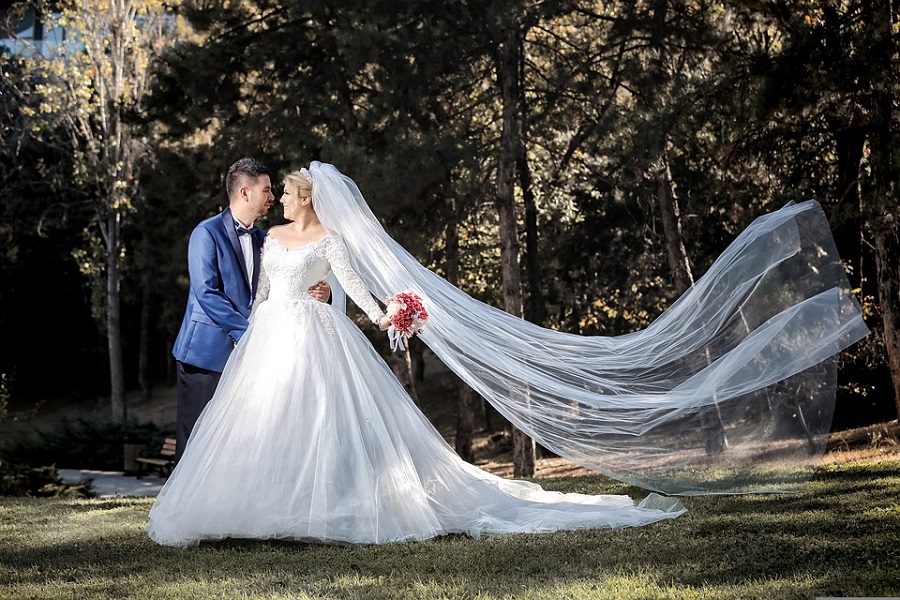
Follow us Now on Telegram ! Get daily 10 - 12 Interesting Updates. Join our Telegram Channel https://t.me/OhWomen
Download Telegram App before Joining the Channel
Just a week ago, Princess Beatrice, the granddaughter of Queen Elizabeth II, married her fiance Edoardo Mapelli Mozzi in a private ceremony at Windsor Castle. The royal wedding in the midst of a pandemic was intimate, but that did not stop the dress being fit for a princess, even though it wasn't custom made for the occasion.
The dress spoke of the bride's lineage - first worn by Queen Elizabeth in 1962 to a film premier, it was on loan to the bride from her grandmother. Not only did the young royal tick the bridal checklist of "something old, something borrowed", it also reminded us how there is nothing more haute than an heirloom.
Shopping in the wardrobes of our mothers and grandmothers is what stylish women have been doing for decades, something Kareena Kapoor khan knew when she had her mother in law, Sharmila Tagore's gharara (Indian ensemble), restored for her own wedding ceremony to Saif Ali Khan in 2012.
Most of our mothers bought their saris and evening gowns with a view of passing it down to the next generation. Something many of us care little to think of when we are out shopping. But the pause created by the pandemic has made us examine our own fashion footprints. It has also emphasized the role of family in our daily lives.
"Craft", "Value" and "Timeless", are the current buzzwords of fashion. Old is the new New.
Wearing heirlooms or ensembles passed down from generation-to-generation is rooted in Indian tradition. It is a style that comes naturally to us.
As Palak Shah the CEO of Ekaya, a luxe Indian proud brand that specialises in Banarasi hand woven textiles, says, "An attachment to heirloom pieces comes very naturally to us. It wouldn't be too far from the truth to say that it's ingrained in our collective, cultural subconscious. So, it transcends the definition of trends, and is more a way of being." Many brides come into her stores with their mothers' saris looking to make these textiles their own on their special day.
Of course it is not just about brides - women of good taste are proud to wear an heirloom. It keeps your loved ones close to you and has a feel of old world charm, something money cannot buy.
Business women and style maven Roohi Oomerbhoy Jaikishan believes, "I don't think heirlooms will ever go out of style. The lockdown measures brought on by this pandemic have reminded us all of how intrinsically the past is always connected to the future; heirlooms whether they are to be worn or a piece of art or an object are a reflection of the past and its continuity."
At this time when when slow fashion is being seen as the future of fashion, when we are talking about choosing well and making clothes last, wearing a vintage piece of fashion is a sign of style and substance. (We all know the many reasons to be more conscious about our shopping habits. We also know fashion is the second biggest polluter in the world; until we become conscientious consumers' things will not change.)
When you shop with the thought of passing your purchase on to the next generation, you will automatically choose something of good quality that is timeless, well-crafted and is beautiful. You will shop with the eye of the collector.
"When I think of buying something, I would like my daughter to inherit and preserve it just like my mother did. If you invest in something of good quality and quiet luxury it will always be timeless for generations to come," says art patron Oomerbhoy Jaikishan, known for her minimalist-maximalist style.
The added bonus of buying fashion as an heirloom ensures that India's rich craft heritage stays alive. Says Shah, "While we honor the heirlooms collected over time, if we are looking to buy new pieces, we should do our best to identify and appreciate the artisanal essence in them, which has the power to make it an heirloom. There are current-generation artisans who make beautiful pieces."
Source-IANS